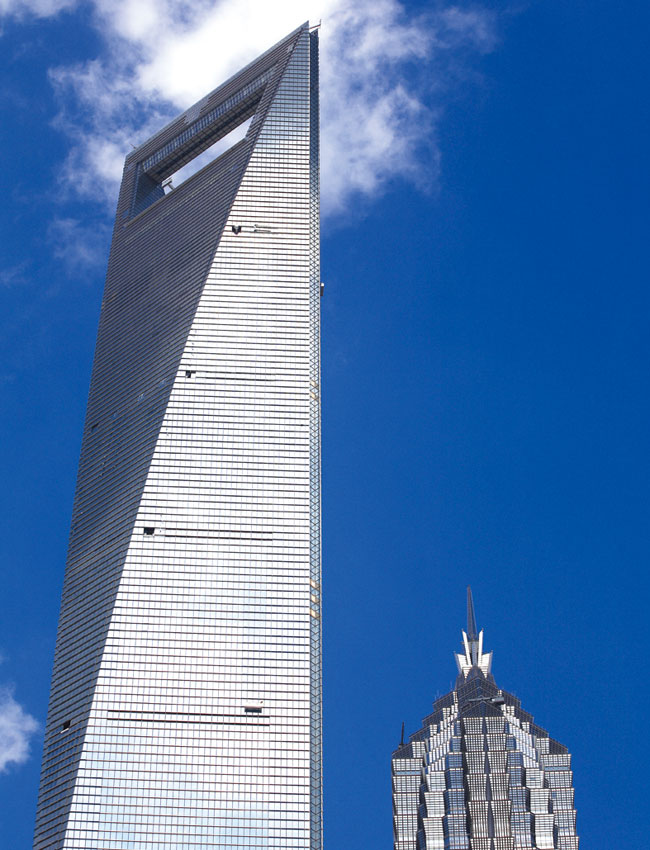OUTWARD AND UPWARD: China’s Travel Industry Looks to the Future 中国旅游业的光明前景
By Carrie Hadler
The face of travel in China has changed rapidly over the last twenty years.
As China’s oft-mentioned rising middle class continues to grow, the options for where their (or their employer’s) yuan goes also expands. In 2009, China’s tourism and travel industry revenue topped one hundred billion RMB for the first time —70 percent of which came from Chinese nationals. A significant portion of this travel is, of course, dedicated to family and Holidays. Over the last five years, more than 200 million Chinese traveled during the weeklong National Day, International Labor Day, and Spring Festival holidays— a significant jump to years prior.
Much of this growth has been facilitated by the Chinese government’s investment in the country’s transportation system. Urban infrastructure investment has constituted an average of 2.6% of China’s total GDP since 1994, and the rise of the car in China has also led to a more mobile population. The rate of air travel, especially, has skyrocketed while intense competition between domestic carriers keeps ticket prices relatively low. Currently in second place, Beijing’s airport is set to surpass the United States’ Atlanta airport as “world’s busiest” before the end of this year. This represents a huge jump in just two years. In 2011, Beijing was only 34th on that list.
The accessibility of travel has grown with Chinese incomes. Whereas most travel arrangements used to be made in person or by phone, through a travel agent or at the airline’s office with cash, today, people can easily book their trips online using credit cards. Encompassing search engines such as c-trip.com have made this increasingly easy, and also offer phone service to capture the more traditional traveler. Young people, especially, have been quick to embrace the ability to book plans online, though.
The factors that people consider when making their hotel plans, on the other hand, have remained relatively constant. “When I am looking at different hotels, I first consider whether it’s clean, then look at the service quality, luxury, and price,” said 25-year old Beijing resident and business owner Cheng Guo. “I like nice places and appreciate good service, but the price should be reasonable, too.” Domestic tourist sites often differ from the places international tourists tend to go, but there is significant overlap when it comes to the most historically significant or beautiful destinations—the Great Wall and Forbidden City remain perennially popular for both Chinese and foreigners, and help to keep Beijing at #1 on the list of China’s most popular travel destinations. The hustle-and-bustle of Shanghai puts it at #2 on the list of China’s most popular destinations in 2012, closely followed by Guangzhou, Chongqing, and Hangzhou. The rankings were based on six criteria: number of international visitors, number of domestic visitors, foreign currency exchange earnings, domestic tourism income, number of starred hotels, and the number of outstanding scenic spots.
Not all travelers opt for the cities, though. China’s beautiful natural sites are also gaining attention. Jiuzhaigou National Park, a UNESCO World Heritage Site, is drawing more and more people every year. The Huangguoshu waterfall, China’s largest waterfall, also draws many visitors each summer.
The latest trend in China is towards international travel. In 2011, Chinese made 70 million trips abroad — a more than 20% increase from the year before. As the Chinese government continues to approve more countries as a destination for their citizens and the number of people with expendable income continues to grow, these numbers will undoubtedly only climb higher. Europe, Dubai, the Philippines, and the Maldives have all been popular destinations with Chinese tourists in recent years, according to Eric Li, the manager for Macau Government Tourism Office. International destinations closer to home still lead the list, though — South Korea and Russia were two of the most visited foreign countries in 2011. Wang Xinjun, founder of Ivy Alliance Consulting, expects that the Chinese love for tropical islands will soon bring Guam to near the top of that list.
One recent trend in Chinese international travel has been a move away from tour groups. In the past, Chinese tended to stay with a large tour group for language and comfort reasons. With more and more people feeling comfortable going solo and confident in their language skills, the incidence of independent travel is expected to grow, and young Chinese may soon join the backpacking crowds in Europe, the United States, and Southeast Asia in greater numbers.
Some of the changes in Chinese travel have been brought about by a surge in overall economic growth and business-related travel. Robin Han, the Director of Sales for Radius Global Travel Solutions in China, said that he has seen a 10-15 percent growth in domestic companies’ travel budgets over the last few years, compared with just 7-10 percent growth for multinational corporations.
Aimin Yan, faculty director of the international management program at Boston University’s School of Management, said, “Face-to-face contact is very important for doing business in China. Trust is integral for a successful business transaction. Clients generally feel more comfortable if they see your eyes, facial expressions, and the level of respect with which you treat them. In-person meetings can be immensely important to the continued success of a business relationship.”
The World Travel & Tourism Council’s analysis of the Asia-Pacific region echoed these thoughts. Their assessment shows a sales conversion of 57 percent for in-person meetings in China with 38 percent of overall sales dependent on business travel and in-person meetings — compared with just 28 percent in the UK and 21 percent in the US. In China, the Internet has certainly risen, but face-to-face is still king in the business world.
As the Chinese travel and tourism market continues to mature, some truths will hold universal. Chinese travelers will continue to search out the best deals for their money at destinations that fit their interests and offer good value. As the ancient proverb says, “Walking ten thousand miles of the world is better than reading ten thousand scrolls.”
在过去的20年间,中国的旅游业发生了翻天覆地的变化。随着中国常被论及的新兴中产阶级人数的持续增长,他们的(或者他们雇主的)消费选择也在不断增多。2009年,中国的旅游业收入首次突破1千亿元人民币,其中有70%的收入来自中国本国公民。毫无疑问,这笔收入中的大部分来自于家庭旅游和假日游。过去五年里,有2亿多中国人在长达一周的国庆节、国际劳动节和春节假期中出游──出游人数较以往有了大幅增加。
中国政府对交通运输系统的投资在很大程度上促进了中国旅游业的发展。自1994年以来,中国在城市基础设施建设方面的投资占据了国内生产总值的2.6%(平均值),而国内汽车数量的增加也加大了人口的流动性。航空旅行的发展速度尤其迅猛,而且国内航空公司之间的激烈竞争也使得机票价格相对较低。目前,北京机场排名世界第二位,并有望在今年年底前超越美国亚特兰大机场,成为“全球最繁忙”的机场。这代表着短短两年时间里的一次巨大飞跃。2011年,北京机场仅名列第34位。
随着中国人收入的增加,旅行已不再是一件遥不可及的事。过去,大多数人都是亲自前往旅行社或航空公司办事处,或者通过致电这些单位来安排旅行计划,且都是采用现金交易;而现在,人们可以使用信用卡进行网上订票,轻松安排行程。有些公司,比如,携程网(c-trip.com),拥有综合搜索引擎,让网上预订更加方便快捷;同时,这些公司还提供电话预定服务,以招揽更多的传统旅客。然而,年轻人尤为迅速地接纳了网上预定旅行计划的方式。
从另一方面看,人们在选择酒店时考虑的因素基本保持不变。25岁的北京居民及业主程国说道:“在查看不同的酒店时,我首先考虑的是它们是否整洁,然后再看其服务质量、豪华程度和价格。我喜欢优美的地方,并且欣赏优质的服务,但是其价格也应当合理。”
国内旅游景点一般与国际游客常去的地方有所不同,但是最具历史意义或风景十分优美的景点都很受中外游客青睐──长城和故宫一直以来都是国内外游客必至的旅游景点,正因为此,北京一直位居中国最受欢迎旅游目的地的榜首。喧闹繁忙的上海则是2012年旅游目的地排行榜的榜眼,紧随其后的是广州、重庆和杭州。排名基于六项标准:国际游人数、国内游人数、旅游外汇收入、国内旅游收入、星级酒店数和优秀景区数。
并不是所有游客都选择城市作为旅游目的地。中国美丽的自然景区也一直是人们关注的焦点。被联合国教科文组织列入世界文化遗产的九寨沟国家公园,每年都吸引着越来越多的人前往游览。中国最大的瀑布——黄果树瀑布,每年夏季都会接待众多的游客。
国际旅行是中国人旅行的最新趋势。2011年,中国人出国旅行人次达7千万,比前一年增加了20%以上。中国政府批准了更多的国家作为中国人的旅游目的地,拥有可支配收入的人群也在持续增加,因此出国旅行人数必定会不断攀升。据澳门政府旅游局经理Eric Li称,近年来,欧洲、迪拜、菲律宾和马尔代夫一直都是大受中国游客欢迎的旅游目的地。但是,离中国较近的国际旅游目的地仍然位居榜首──韩国和俄罗斯是2011年间接待中国游客最多的两个国家。北京艾威联合旅游顾问有限公司创办人王新军预计,鉴于中国游客非常喜爱热带岛屿,关岛将很快逼近旅游目的地排行榜的榜首。
中国人国际旅行的一个新趋势就是脱离旅游团。过去,由于语言和舒适度方面的原因,中国人一般会参加大型旅游团出国旅游。随着越来越多的人们感到独自旅行的惬意,并对自己的语言交流能力充满信心,自助游的比例有望上升,大批年轻的中国人会很快加入背包客一族,徒步赴欧洲、美国和东南亚旅行。
中国整体经济和商务旅行的飞速发展也为中国旅行业带来了一些变化。Radius全球旅行方案中国销售总监Robin Han表示,在过去几年里,国内公司的旅行预算增长了10-15%,而跨国公司的该项增长只有7-10%。
波士顿大学管理学院国际MBA学术主任阎爱民博士说:“在中国做生意,面对面的交流是非常重要的。信任是商业交易取得成功的必要条件。一般来说,如果客户能看到你的眼睛、面部表情以及你对他们的尊重程度,他们会感到更加舒适。亲自会面对于业务关系的持续成功是极其重要的。”
世界旅游业理事会对亚太地区的分析结果也与上述观点一致。其评估结果显示,在中国,亲自会面的销售转化率可达57%,总销售额的38%有赖于商务旅行和亲自会面──而英国和美国的该项数字仅为28%和21%。在中国,互联网交流无疑在不断增加,但面对面的交流仍然是商业界采用最多的交流方式。
随着中国旅游业市场的日趋成熟,有些规律将普遍适用。中国旅行者将继续寻找既符合自身兴趣,又能让自己有所收获的旅游目的地,以实现最高的投资回报。俗话说得好:“读万卷书不如行万里路。”





You must be logged in to post a comment Login